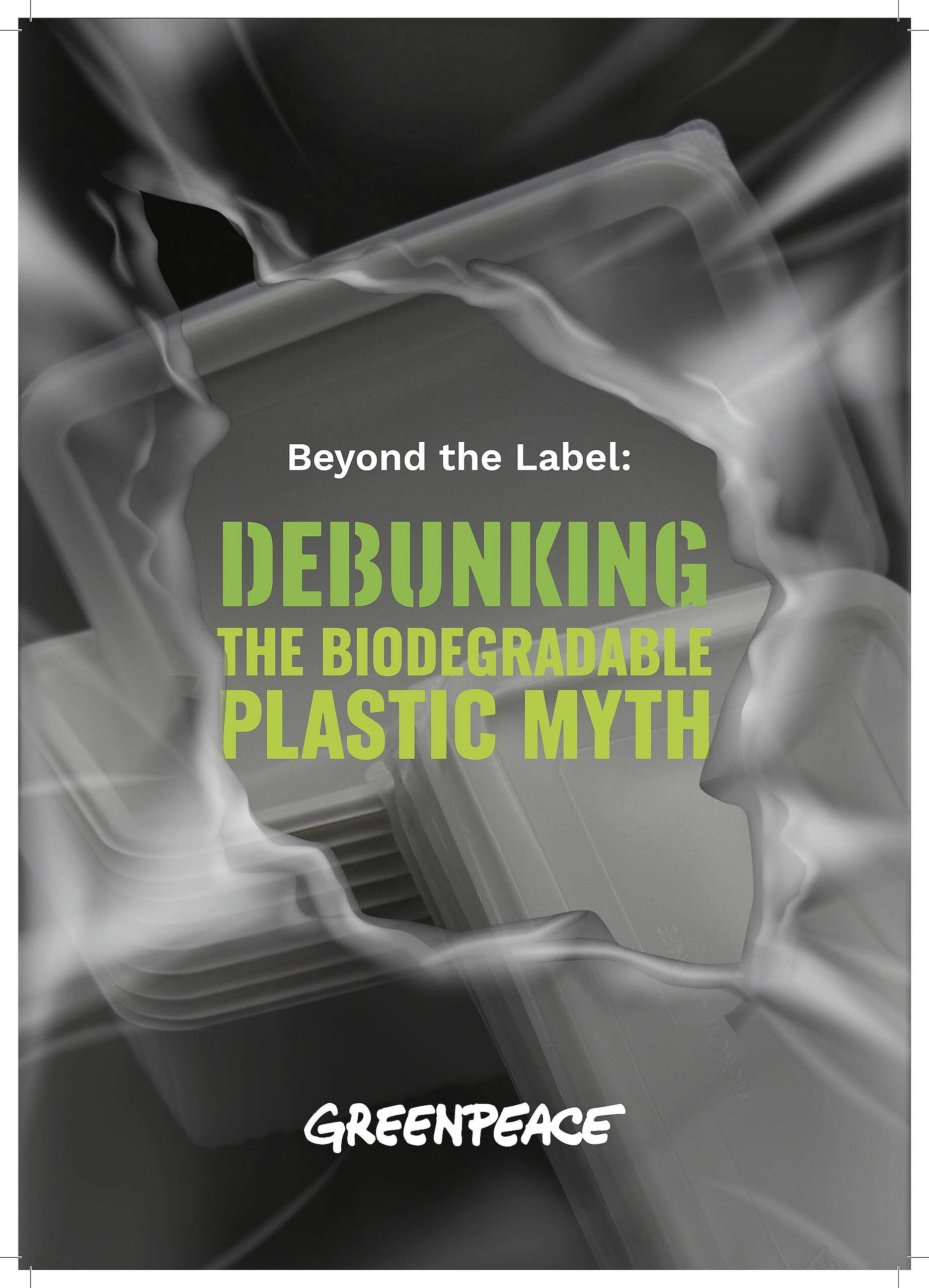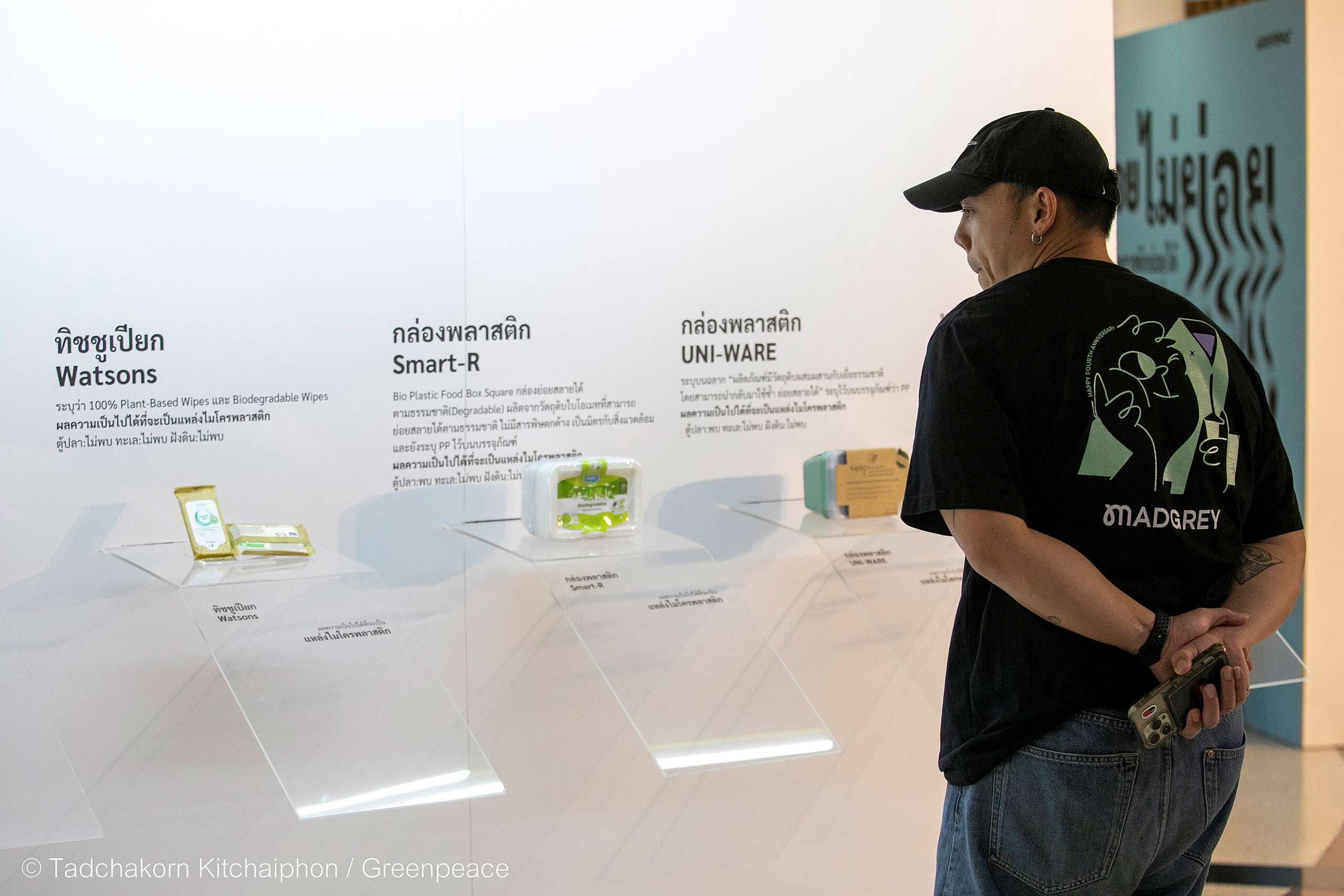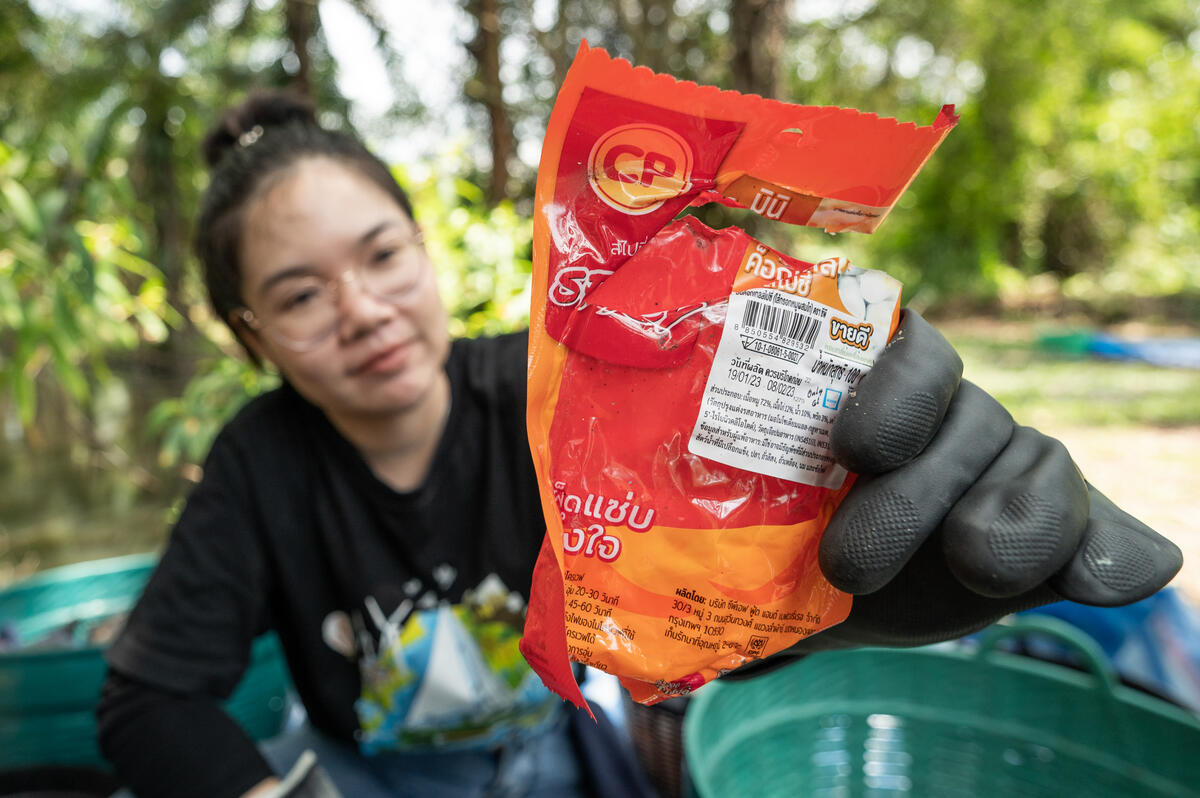Bangkok – In the latest plastic brand audit conducted by Greenpeace Thailand, five Thai companies, led by CP, Osotspa, TCP Group, Sermsuk and Singha Corporation, were identified as the top local brands most responsible for much of the plastic pollution in Thailand. Meanwhile, Coca-Cola, Nestlé, Ajinomoto, Mondelēz and Unilever topped the list of international brands that also locally contribute to the plastic crisis [1].
The plastic brand audit is part of the #BreakFreefromPlastic global movement which aims to reduce single-use plastics and to push for lasting solutions to the plastic pollution crisis [2] . In September, a total of 484 cleanups in 51 countries in six continents were organised to identify the top polluting companies. The top three most identified brands in global brand audits are Coca-Cola, Nestlé, and PepsiCo.
Pichmol Rugrod, Plastic Project Leader for Greenpeace Thailand said “This report provides more evidence of how corporations have greatly contributed to the plastic crisis that we find ourselves in. Their continued reliance on single-use plastic packaging translates to more throwaway plastic into the environment. Recycling is not going to solve this problem. Therefore, corporations should urgently reduce their production of single-use plastic and find innovative solutions focused on alternative delivery systems that do not create any more pollution”.
Greenpeace Thailand organised plastic brand audits at Doi Suthep in Chiang Mai province on the 11st of September 2019 and Laem Son On in Songkhla province on 21st of September 2019. A total of 115 volunteers and community members joined the activity and documented 6,091 pieces of plastic waste – 5,485 of which were food packaging and 231 were smoking materials.
Apisak Tassanee, Founder and coordinator of Beach for Life group who joined plastic brand audit in Songkhla said “Responsibility for this plastic pollution problem lies not with individual “litterbugs”, but with corporations who must adopt sustainable solutions and systems to stop the crisis. We hope that this brand audit result will push the corporations to change their practices and be more accountable to the environmental and its social consequences caused by their single-use plastic packaging.”
Greenpeace is calling on corporations, specifically Fast Moving Consumer Goods sector and other companies to prioritise the following four actions:
- Be transparent : Publicly disclose comprehensive information about their plastic footprint and the plastics they use;
- Commit to reduction : Set annual targets for continually reducing their single-use plastic footprint towards complete phase out;
- Urgently eliminate problematic and unnecessary plastic : Begin reduction efforts by eliminating the most problematic and unnecessary single-use plastics by the end of 2019;
- Invest in reuse and alternative delivery systems : Make significant investment in creating refillable, reusable containers and the innovation of new delivery systems that minimise the need for single- use plastic packaging.
With Thailand’s hosting of the 35th ASEAN Summit from 2-4 November, Greenpeace Thailand is calling upon ASEAN representatives to review the ASEAN framework of action on marine debris which was agreed upon in June this year [4]. Greenpeace believes the framework does not address the source of pollution caused by single-use plastic. The framework also failed to address the importation of foreign waste and waste trade problems that have plagued Thailand and its ASEAN neighbors like Indonesia, Malaysia, the Philippines, and Vietnam.
Notes:
[1] Thailand’s plastic brand audit report 2019 (in Thai) can be downloaded at https://act.gp/THBrandAudit2019
[2] BRANDED Volume II: Identifying the World’s Top Corporate Plastic Polluters (2019) can be downloaded at https://www.breakfreefromplastic.org/globalbrandauditreport2019/
[3] The amount (in units) of plastic used by a company in their supply chain for own products, packaging and transport within a defined twelve-month period, including geographical and product category information related to their use of plastics. Full transparency means publicly reporting on how much plastic is used, including the number of items, what kinds of plastic, and its purpose, to establish a baseline from which to measure progress. The provision of sales data alone is not disclosure of a company’s plastic footprint.
[4] https://www.asean2019.go.th/en/news/asean-framework-of-action-on-marine-debris/
Photos of brand audit activities in Chiang Mai and Songkhla can be found at: https://act.gp/BrandAuditChiangMai2019 and https://act.gp/BrandAuditSongkhla2019
https://media.greenpeace.org/archive/Brand-Audit-in-Chiang-Mai-27MZIFJ86XQ3M.htmlContact
Pannapa Phanitjaroen
Tel: 095-5853471
E-mail : [email protected]



